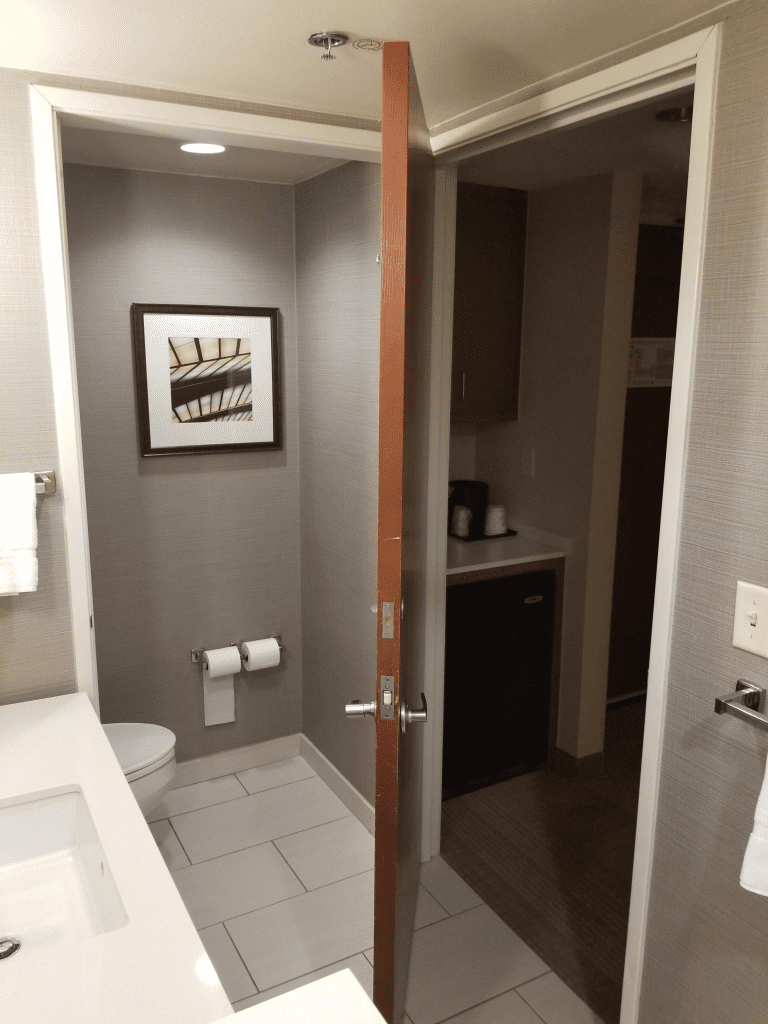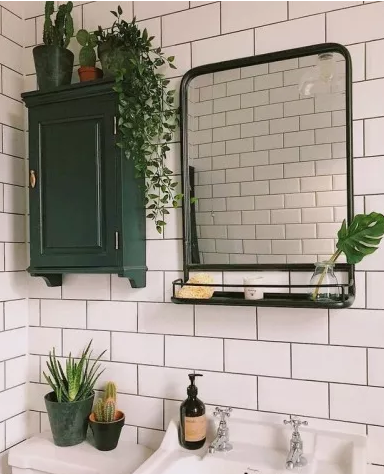When it comes to maintaining a fresh and clean home, even the smallest details matter. One of the most debated questions in household upkeep is whether the bathroom door should be left open or closed when not in use. Many people unknowingly make a choice that can negatively impact the air quality and hygiene of their entire home. Let’s explore why this small decision is more important than you think and how to avoid common mistakes.
The Hidden Impact of Bathroom Odors on Your Home

Bathrooms are naturally humid spaces, often prone to lingering odors and bacteria. Even with regular cleaning, it’s not uncommon to notice an unpleasant smell in your bathroom. You might wonder, “Why does my bathroom smell even though I clean it every day?” The answer often lies in the way air circulates—or fails to circulate—throughout your home.
Leaving the bathroom door open after use might seem like the logical choice. After all, it allows air to flow freely and seemingly prevents odors from being trapped. However, this well-meaning habit can have unintended consequences, spreading bacteria and smells to other parts of your house.
Why Leaving the Bathroom Door Open Is a Mistake
Leaving the bathroom door open might feel like you’re airing out the space, but in reality, it creates a pathway for odors and bacteria to spread. These unpleasant elements can cling to your furniture, seep into fabrics, and even affect the air quality in your living spaces. Worse, they can settle on food or enter your body, potentially leading to health risks over time.
Bathrooms are humid environments by design. The combination of water, heat, and limited ventilation creates the perfect breeding ground for bacteria and mold. When you leave the door open, you allow these microorganisms to travel freely, spreading beyond the bathroom and contaminating other areas of your home.
The Role of Humidity and Poor Ventilation
One of the key reasons bathrooms develop odors is due to high humidity levels. This is especially true for bathrooms without windows or those with inadequate ventilation systems. When humidity levels remain unchecked, it can exacerbate smells and allow mold to grow in hidden corners.
Some people believe that keeping the door open solves this issue by allowing moisture to escape. Unfortunately, without proper airflow management, the humidity simply migrates to other rooms, potentially causing damage to walls, ceilings, and furniture.
How to Prevent Odors Without Leaving the Door Open
So, what’s the best way to handle bathroom odors and humidity? Instead of leaving the door open, focus on better ventilation and proactive measures. Here are some practical tips to maintain a fresh-smelling bathroom and a hygienic home:

- Use an Exhaust Fan
Turn on the bathroom exhaust fan during and after showers or other activities that generate steam. This helps remove excess moisture from the air, reducing the chances of mold and odor development. - Install a Dehumidifier
If your bathroom doesn’t have an exhaust fan or window, consider using a portable dehumidifier. This device will help keep humidity levels in check, preventing bacteria and mold from thriving. - Open the Window
If your bathroom has a window, opening it for a few minutes each day can significantly improve airflow. This allows fresh air to circulate and eliminates trapped moisture without spreading odors to the rest of the house. - Clean Regularly
Frequent cleaning is essential to keep your bathroom free of lingering smells and germs. Pay extra attention to the toilet, shower drains, and any damp areas where bacteria may accumulate. - Close the Door and Use Scent Neutralizers
Keep the bathroom door closed to contain odors within the space. To tackle odors effectively, use natural scent neutralizers such as baking soda or activated charcoal. These absorb unpleasant smells without adding artificial fragrances. - Fix Plumbing Issues
Sometimes, odors stem from plumbing problems, such as a clogged drain or faulty seal. Address these issues promptly to prevent bad smells from persisting.
The Health Risks of Poor Bathroom Hygiene
The decision to leave the bathroom door open or closed isn’t just about aesthetics—it can also impact your health. When bacteria from the bathroom spread to other areas, it increases the risk of exposure to harmful microorganisms. These can cause respiratory problems, allergic reactions, and other health issues, especially in households with children, elderly members, or individuals with weakened immune systems.

Moreover, bathrooms are often home to invisible particles from flushing toilets. These particles can become airborne and settle on surfaces if not contained properly. Closing the door and using the exhaust fan helps to minimize this risk and keep your home environment safer.
The Psychological Benefits of a Clean, Fresh-Smelling Bathroom
Let’s not underestimate the psychological effects of cleanliness. A well-maintained bathroom with no lingering odors can make your home feel more inviting and comfortable. Imagine hosting guests and knowing they won’t be greeted by unpleasant smells wafting from the bathroom. It’s a small change that can make a big difference in how you and others perceive your living space.
Conclusion
When it comes to the bathroom door debate, the verdict is clear: keeping the door closed when the bathroom is not in use is the smarter, healthier choice. It prevents the spread of odors and bacteria, protects your home’s air quality, and reduces health risks. Combine this with proper ventilation techniques like using an exhaust fan or opening a window, and you’ll have a bathroom that stays fresh and hygienic.
So next time you step out of the bathroom, resist the urge to leave the door open. By adopting these simple yet effective habits, you can create a cleaner, more pleasant environment for yourself and your family. After all, a fresh home is a happy home!


